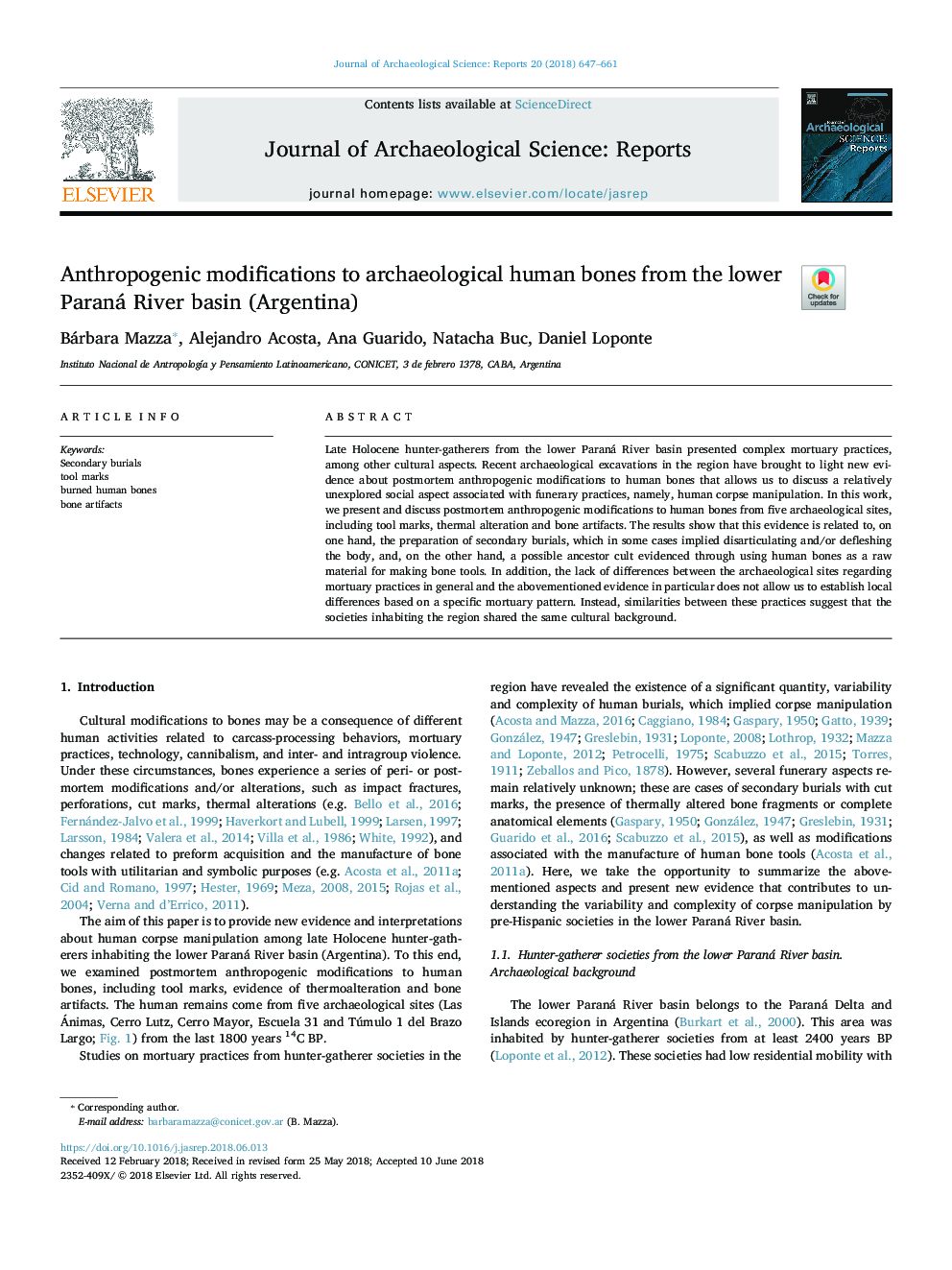| کد مقاله | کد نشریه | سال انتشار | مقاله انگلیسی | نسخه تمام متن |
|---|---|---|---|---|
| 7444597 | 1483923 | 2018 | 15 صفحه PDF | دانلود رایگان |
عنوان انگلیسی مقاله ISI
Anthropogenic modifications to archaeological human bones from the lower Paraná River basin (Argentina)
دانلود مقاله + سفارش ترجمه
دانلود مقاله ISI انگلیسی
رایگان برای ایرانیان
کلمات کلیدی
موضوعات مرتبط
علوم انسانی و اجتماعی
علوم انسانی و هنر
تاریخ
پیش نمایش صفحه اول مقاله

چکیده انگلیسی
Late Holocene hunter-gatherers from the lower Paraná River basin presented complex mortuary practices, among other cultural aspects. Recent archaeological excavations in the region have brought to light new evidence about postmortem anthropogenic modifications to human bones that allows us to discuss a relatively unexplored social aspect associated with funerary practices, namely, human corpse manipulation. In this work, we present and discuss postmortem anthropogenic modifications to human bones from five archaeological sites, including tool marks, thermal alteration and bone artifacts. The results show that this evidence is related to, on one hand, the preparation of secondary burials, which in some cases implied disarticulating and/or defleshing the body, and, on the other hand, a possible ancestor cult evidenced through using human bones as a raw material for making bone tools. In addition, the lack of differences between the archaeological sites regarding mortuary practices in general and the abovementioned evidence in particular does not allow us to establish local differences based on a specific mortuary pattern. Instead, similarities between these practices suggest that the societies inhabiting the region shared the same cultural background.
ناشر
Database: Elsevier - ScienceDirect (ساینس دایرکت)
Journal: Journal of Archaeological Science: Reports - Volume 20, August 2018, Pages 647-661
Journal: Journal of Archaeological Science: Reports - Volume 20, August 2018, Pages 647-661
نویسندگان
Bárbara Mazza, Alejandro Acosta, Ana Guarido, Natacha Buc, Daniel Loponte,